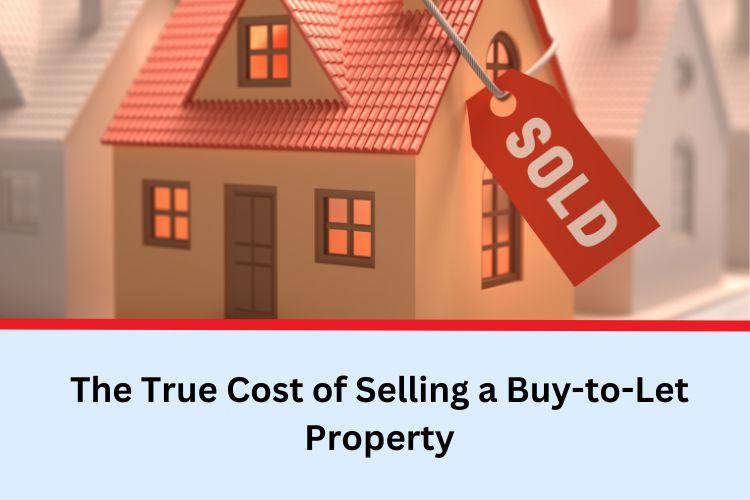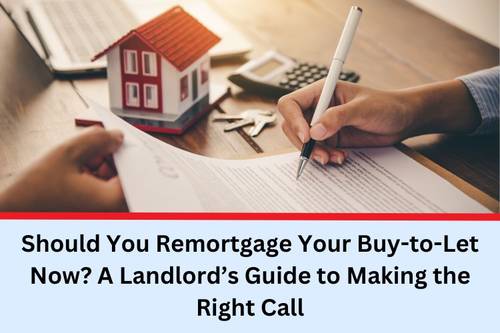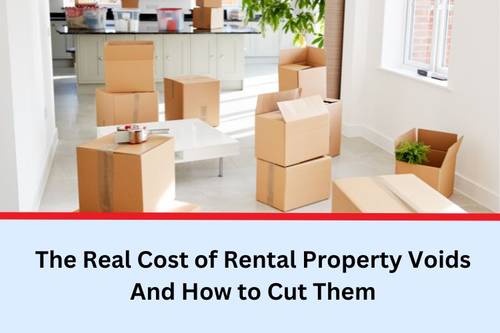Selling a rental property might seem straightforward, but the costs involved can quickly add up, eating into your profits. While most landlords expect to pay estate agent fees and legal costs, there are plenty of hidden expenses that often come as a surprise.
From Capital Gains Tax and mortgage exit fees to potential tenant-related delays, this guide breaks down everything you need to consider before putting your buy-to-let on the market.
Capital Gains Tax – The Big One When Selling BTLs
One of the biggest costs to consider when selling a buy-to-let is Capital Gains Tax (CGT). If your property has increased in value since you bought it, you’ll be taxed on the profit.
For landlords, the CGT rate is 18% for basic-rate taxpayers and 24% for higher-rate taxpayers (previously 28% before April 2024). These rates apply to any profit after deducting allowable expenses.
The government has also significantly reduced the CGT tax-free allowance in recent years. In 2022, the first £12,300 of any gain was tax-free. By April 2024, this has been cut to just £3,000, meaning more landlords will be paying CGT than ever before.
For example, if you bought a property for £150,000 and sell it for £250,000, your taxable gain (after deducting fees and costs) might be around £97,000. With only £3,000 exempt, you could be paying over £22,000 in CGT, depending on your tax bracket.
If you’re thinking about selling, it’s worth speaking to an accountant to see if you can offset any of your CGT liability by claiming stamp duty, legal fees, and estate agent costs against your profit.
These rates and figures are correct as of March 2025 but we encourage you to speak to an accountant and conduct your own research as rates are highly dependent on your specific circumstances.
Estate Agent Fees
If you’re using an estate agent to sell your property, expect to pay between 1% and 3% of the final sale price. This means that on a £250,000 property, you could pay anywhere from £2,500 to £7,500 in commission.
Some landlords try to avoid this by using online estate agents, which often offer fixed fees starting from £999. Others sell directly to investors, bypassing agents altogether.
It’s worth negotiating on fees, especially if you’re in a strong market or selling multiple properties. Some agents may be willing to reduce their commission to secure your business.
Mortgage Exit Fees and Early Repayment Charges
If you still have a mortgage on the property, check whether you’ll need to pay any early repayment charges (ERCs). These fees can be as high as 5% of the outstanding mortgage balance, depending on your lender and how long is left on your fixed term.
For example, if you have £150,000 left on your mortgage and your lender charges a 3% exit fee, you’d be paying £4,500 just to close the loan early.
Some landlords avoid this cost by waiting until their fixed-term deal expires before selling, while others look into porting their mortgage to a new property. It’s always worth checking with your lender before making any decisions.
Solicitor and Conveyancing Fees
Legal costs are another unavoidable expense. Most conveyancers charge between £800 and £2,000, depending on the complexity of the sale. If your property is leasehold, expect to pay extra, as leasehold sales often require additional legal work.
It’s a good idea to get multiple quotes before choosing a solicitor, as prices can vary. Some offer fixed-fee services, which can help keep costs predictable.
Energy Performance Certificate (EPC)
Before selling, you need to ensure your EPC is up to date. If it’s more than 10 years old, you’ll need to get a new one before listing your property. EPCs typically cost between £60 and £120, depending on the size of your property and location.
It’s a small cost, but an essential one. Without a valid EPC, you can’t legally sell your property.
Tenant-Related Costs and Potential Delays
If you have sitting tenants, selling your property can be more complicated. While some investors prefer to buy with tenants in place, this limits your buyer pool to landlords rather than residential buyers.
If you plan to sell with vacant possession, you’ll need to serve notice to your tenants, which can delay the sale by several months. Some tenants may leave the property in poor condition, meaning you could face unexpected repair and cleaning costs before listing it on the market.
Even if the property is already empty, you’ll need to factor in void periods where you’re still paying mortgage repayments, council tax, and utility bills while waiting for a sale.
Some landlords try to minimise void costs by keeping tenants in place until exchange, but this depends on your buyer and whether they’re happy to wait.
Capital Gains Tax Reporting and Payment Deadline
One of the biggest mistakes landlords make is missing the CGT reporting deadline. HMRC requires that CGT on property sales is reported and paid within 60 days of completion. If you miss this deadline, you could face penalties and interest charges.
If your sale falls towards the end of the tax year, you might want to delay completion slightly to push the CGT liability into the next financial year, particularly if allowances change or you expect to have lower taxable income.
Other Costs Landlords Often Forget
While the big costs tend to get the most attention, there are plenty of smaller costs that can add up quickly:
- Removal and clearance costs – If you need to clear out furniture or belongings, this can cost a few hundred pounds.
- Mortgage exit admin fees – Some lenders charge an additional admin fee of £100 to £300 for closing your account.
- Council tax and utilities – If the property is empty for several months, you’ll still be liable for council tax and standing utility charges.
- Repairs and redecorating – If your property is dated or needs work, you might need to spend money freshening it up before listing.
How Much Does It Really Cost to Sell?
When all these costs are added together, selling a buy-to-let property can easily take 5% to 10% off your final sale price.
For example, on a £250,000 sale, you might face:
- Estate agent fees: £3,750 (1.5%)
- Solicitor fees: £1,200
- EPC: £90
- Mortgage exit fees: £4,500
- Capital Gains Tax: Variable (18-24%)
This means you could pay £9,500+ plus tax just to sell the property.
Final Thoughts – Is Selling Your Buy to Let Property the Right Move?
Before selling, it’s worth asking:
- Do I have enough cash reserves to cover all these costs?
- Should I remortgage and hold rather than sell?
- Would it be easier to sell to another landlord to keep tenants in place?
If you’re weighing up your options, PaTMa’s tools can help track investment performance, selling costs, and returns—so you can make the best financial decision for your portfolio.




